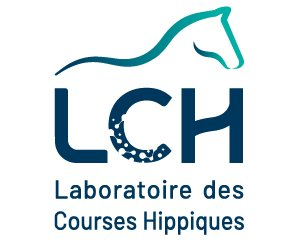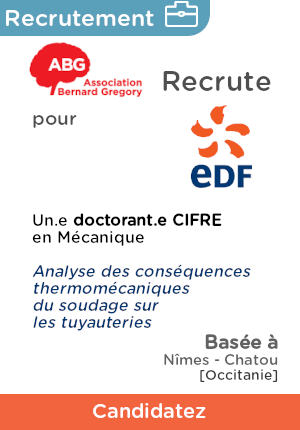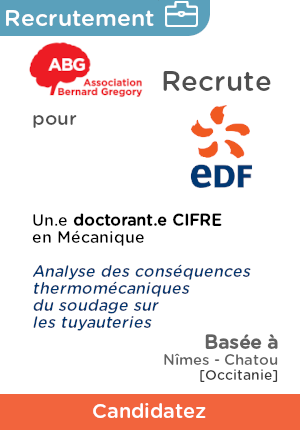Characterization of the AhR biological activity emissions from wood heating F/H
| ABG-125309 | Sujet de Thèse | |
| 26/07/2024 | Contrat doctoral |
- Biochimie
Description du sujet
Residential wood heating significantly contributes to fine particle (PM2.5) concentrations observed in ambient air, especially during the winter. This source emits also large quantities of organic species of different volatilities which are transformed in the atmosphere through physical and (photo-)chemical processes into secondary organic aerosols (SOA) contributing significantly to fine PM concentrations.
The current understanding of the SOA formation processes from these emissions, or from precursor molecules, as well as their physicochemical properties, is still limited, particularly for nighttime chemical processes (involving the NO3 radical) or processes under marine influence involving halogen radicals. The toxic potential of these primary or secondary particles and the associated chemical compounds are also unknown. Toxic compounds such as polycyclic aromatic hydrocarbons (PAHs) and their nitrated or oxygenated derivatives (nitro- and oxy-PAHs) are known to be associated with this type of particles. However, their chemical analysis does not account for all emitted PAH-like compounds, especially biologically active compounds, nor does it account for mixture effects.
Methods based on specific biological effects of a toxic mode of action (e.g., activation of the aryl hydrocarbon receptor (AhR) by PAH or dioxin-like compounds) using in vitro (cell models) or in vivo (whole organisms) assays can address these issues and are complementary to chemical analyses.
In this context, the main objectives of this PhD thesis are to:
Study and characterize the formation of SOA from precursors typically emitted by biomass burning (e.g., PAHs and phenolic compounds) under marine influence (involving Cl radicals).
Quantify and compare, using cellular bioassays, the AhR biological activities (PAH- and dioxin-like) of gaseous and particulate, primary and secondary (aged) emissions from residential wood heating, and SOA formed from PAHs and phenols, under different combustion conditions (excess/lack of air, fuel, log or pellet appliances, etc.) and oxidation simulating daytime, nighttime, and marine influence atmospheric processes (involving OH, NO3, and Cl radicals).
Evaluate the biological effects (e.g., embryonic development, AhR activity, endocrine disruption, cardiac activity alteration) on a model organism (zebrafish embryos, Danio rerio) of organic compounds associated with PM and determine a threshold in vitro activity value beyond which there is a danger to the organism.
Compare and study potential links between the detailed chemical characterization of gaseous and particulate phases and the in vitro/in vivo biological responses to identify the most active chemical species towards the molecular targets studied in cell models and zebrafish embryos.
Prise de fonction :
Nature du financement
Précisions sur le financement
Présentation établissement et labo d'accueil
Ineris (National Institute for the Industrial Environment and Risks) employs around 500 people and serves as a national reference body under the supervision of the French Ministry of the Environment. Its primary mission is to conduct studies and research aimed at preventing risks that economic activities pose to the safety of people and property.
Joining Ineris offers an opportunity to apply and enhance your skills through research, support, and expertise missions on behalf of public authorities and industry. Ineris has 30,000 m² of laboratories and facilities equipped with state-of-the-art instrumentation and equipment.
Site web :
Intitulé du doctorat
Pays d'obtention du doctorat
Etablissement délivrant le doctorat
Ecole doctorale
Profil du candidat
Master’s degree in Environmental chemistry, Analytical Chemistry, Environmental Ecotoxicology, or Environmental Toxicology.
Experience/Skills
Strong interest in experimental and laboratory work.
Knowledge in atmospheric chemistry/air quality would be a plus.
Knowledge in data analysis and statistical processing (e.g., R, Igor Pro).
Autonomy, scientific rigor, adaptability, teamwork, open-mindedness, analytical skills, and writing abilities.
Good oral and written English skills.
Vous avez déjà un compte ?
Nouvel utilisateur ?
Vous souhaitez recevoir nos infolettres ?
Découvrez nos adhérents
 Groupe AFNOR - Association française de normalisation
Groupe AFNOR - Association française de normalisation  CESI
CESI  MabDesign
MabDesign  PhDOOC
PhDOOC  SUEZ
SUEZ  Ifremer
Ifremer  Laboratoire National de Métrologie et d'Essais - LNE
Laboratoire National de Métrologie et d'Essais - LNE  ONERA - The French Aerospace Lab
ONERA - The French Aerospace Lab  Aérocentre, Pôle d'excellence régional
Aérocentre, Pôle d'excellence régional  ADEME
ADEME  Institut Sup'biotech de Paris
Institut Sup'biotech de Paris  MabDesign
MabDesign  CASDEN
CASDEN  ANRT
ANRT  Généthon
Généthon  Nokia Bell Labs France
Nokia Bell Labs France  TotalEnergies
TotalEnergies  Tecknowmetrix
Tecknowmetrix  Institut de Radioprotection et de Sureté Nucléaire - IRSN - Siège
Institut de Radioprotection et de Sureté Nucléaire - IRSN - Siège
-
EmploiCDIRef. ABG123642Laboratoire des Courses Hippiques (GIE LCH)Verrières-le-Buisson - Ile-de-France - France

Chargé(e) de Recherche et Innovation (H/F) / Senior Scientist Research & Innovation (M/F)
Chimie - BiochimieConfirmé -
EmploiCDDRef. ABG125071KTHStockholm - Suède
ERC-funded postdoc position on the detection of gas-phase organic radicals, KTH, Stockholm, Sweden
Chimie - Physique - Sciences de l’ingénieurNiveau d'expérience indifférent -
EmploiCDIRef. ABG124941Corteria PharmaceuticalsMassy-Palaiseau - Ile-de-France - France

Jeune Docteur, Chercheur en Biologie Cellulaire & Moléculaire (H/F)
BiologieNiveau d'expérience indifférent












